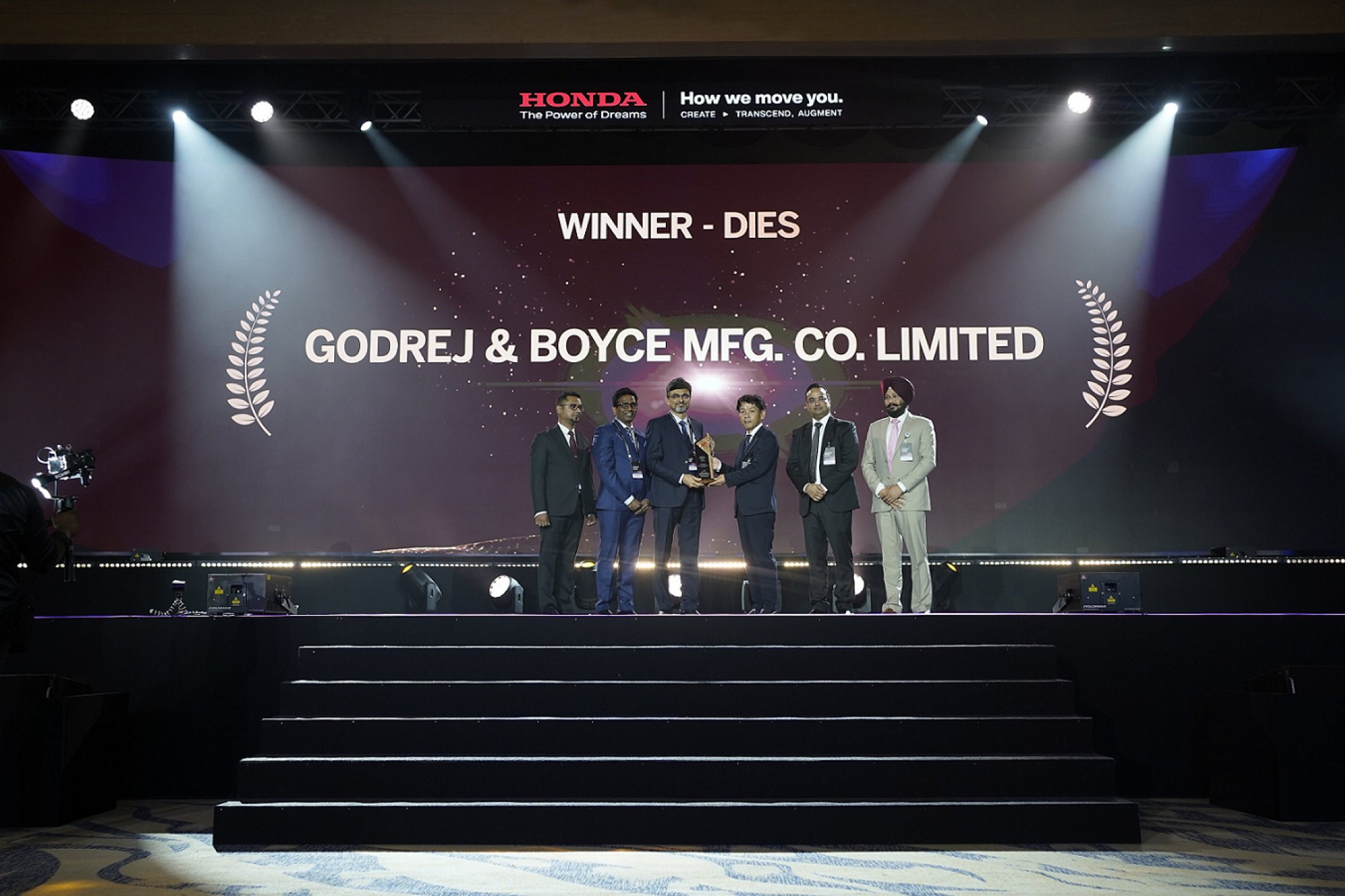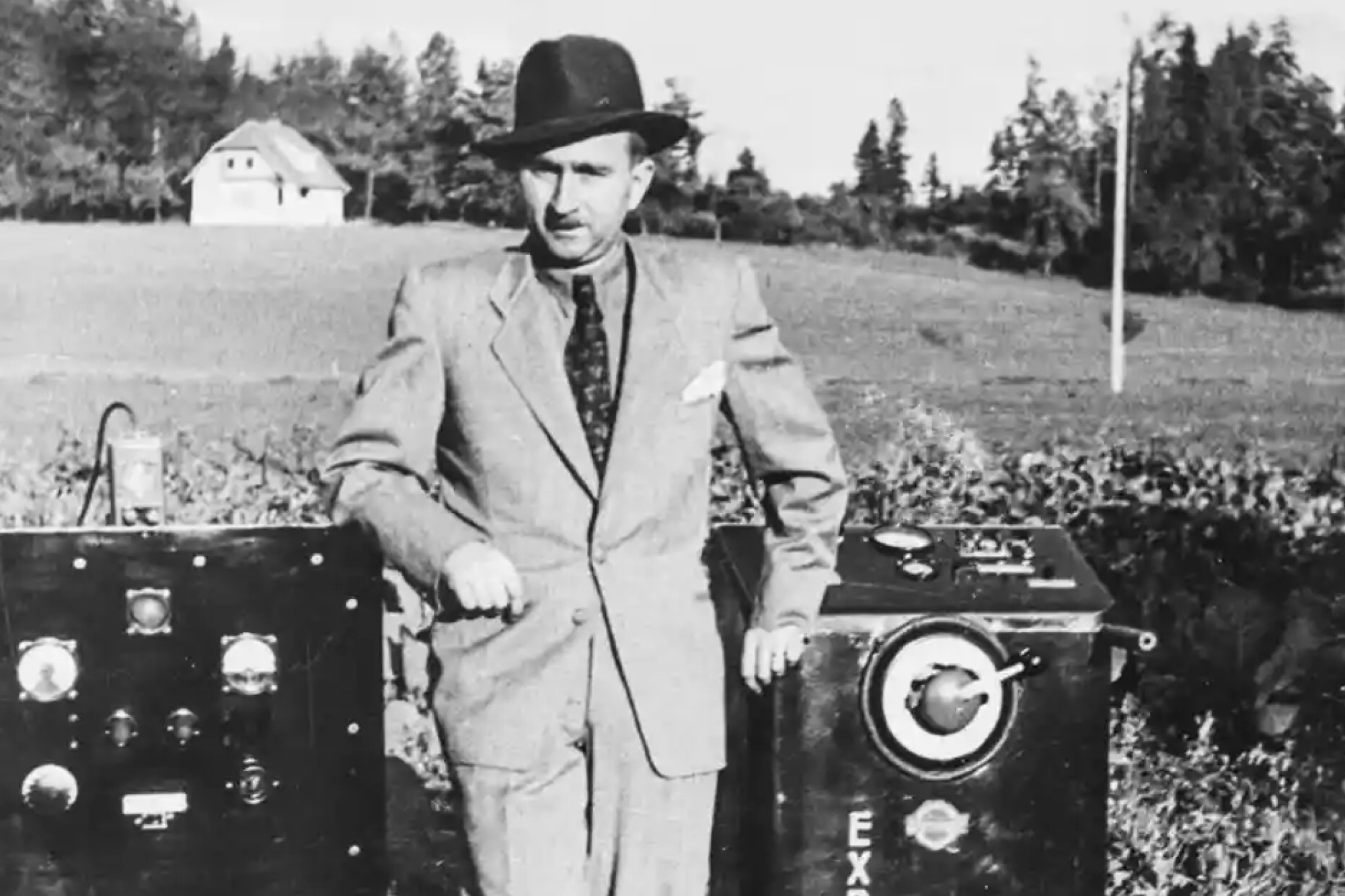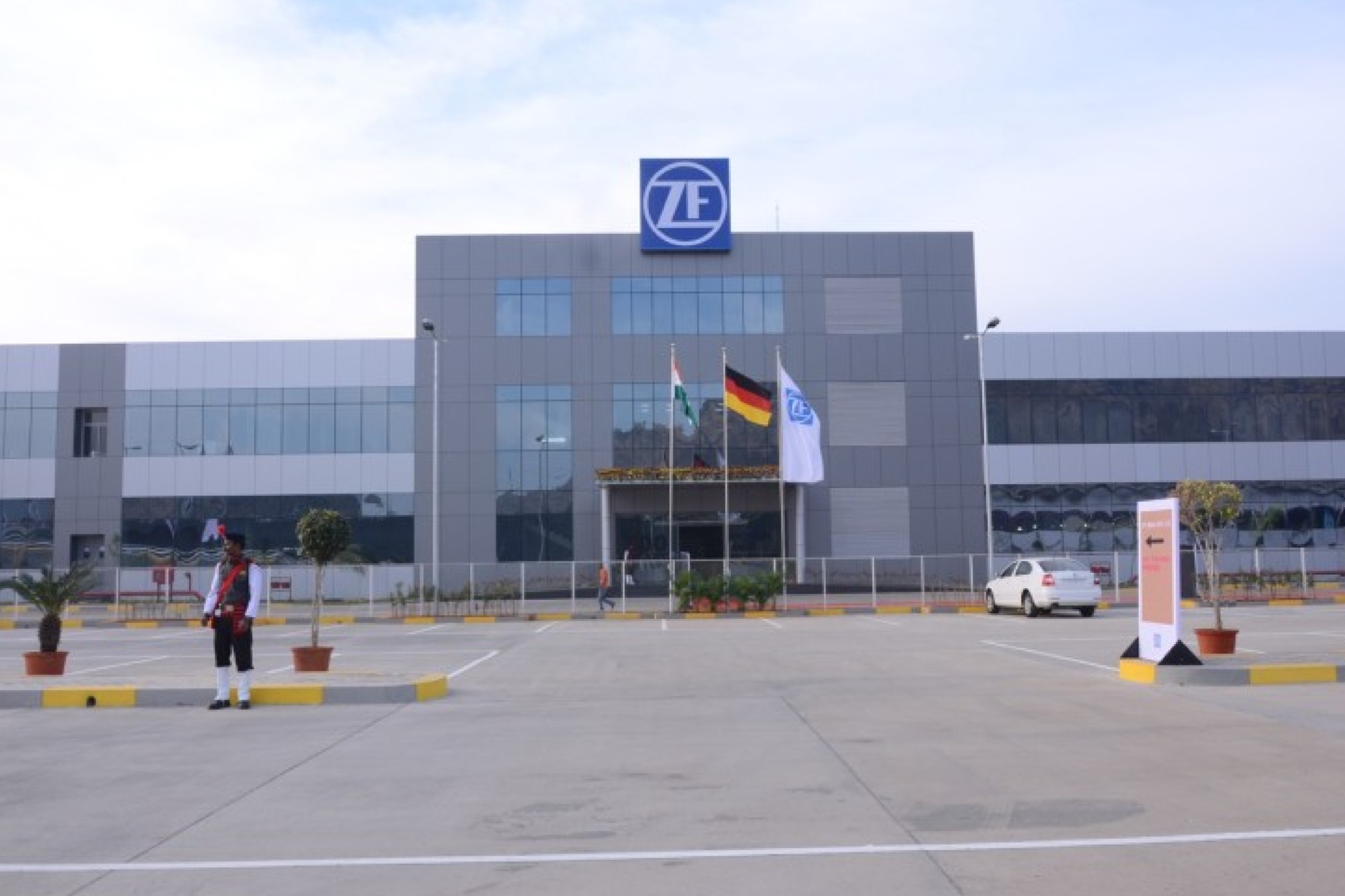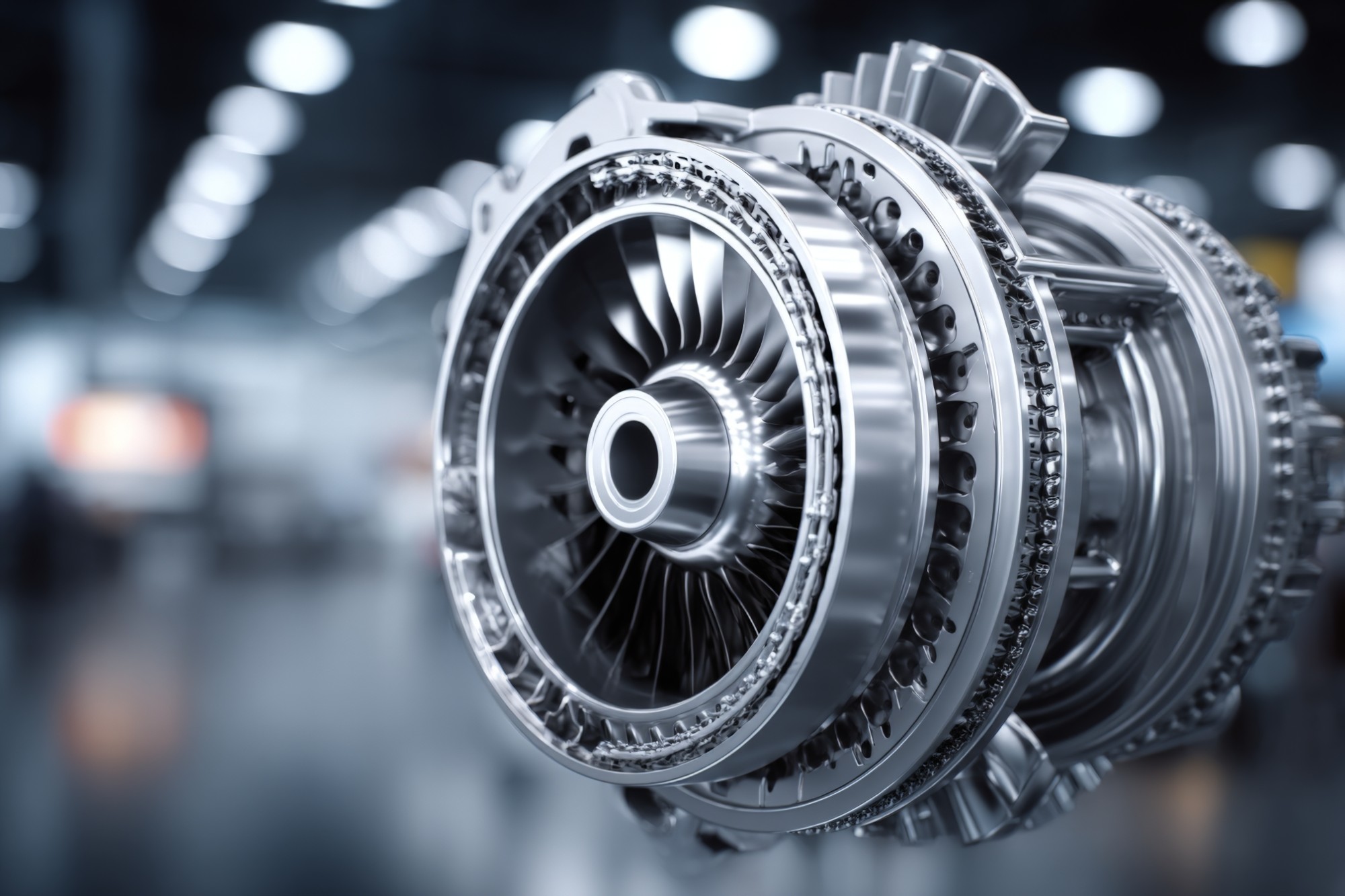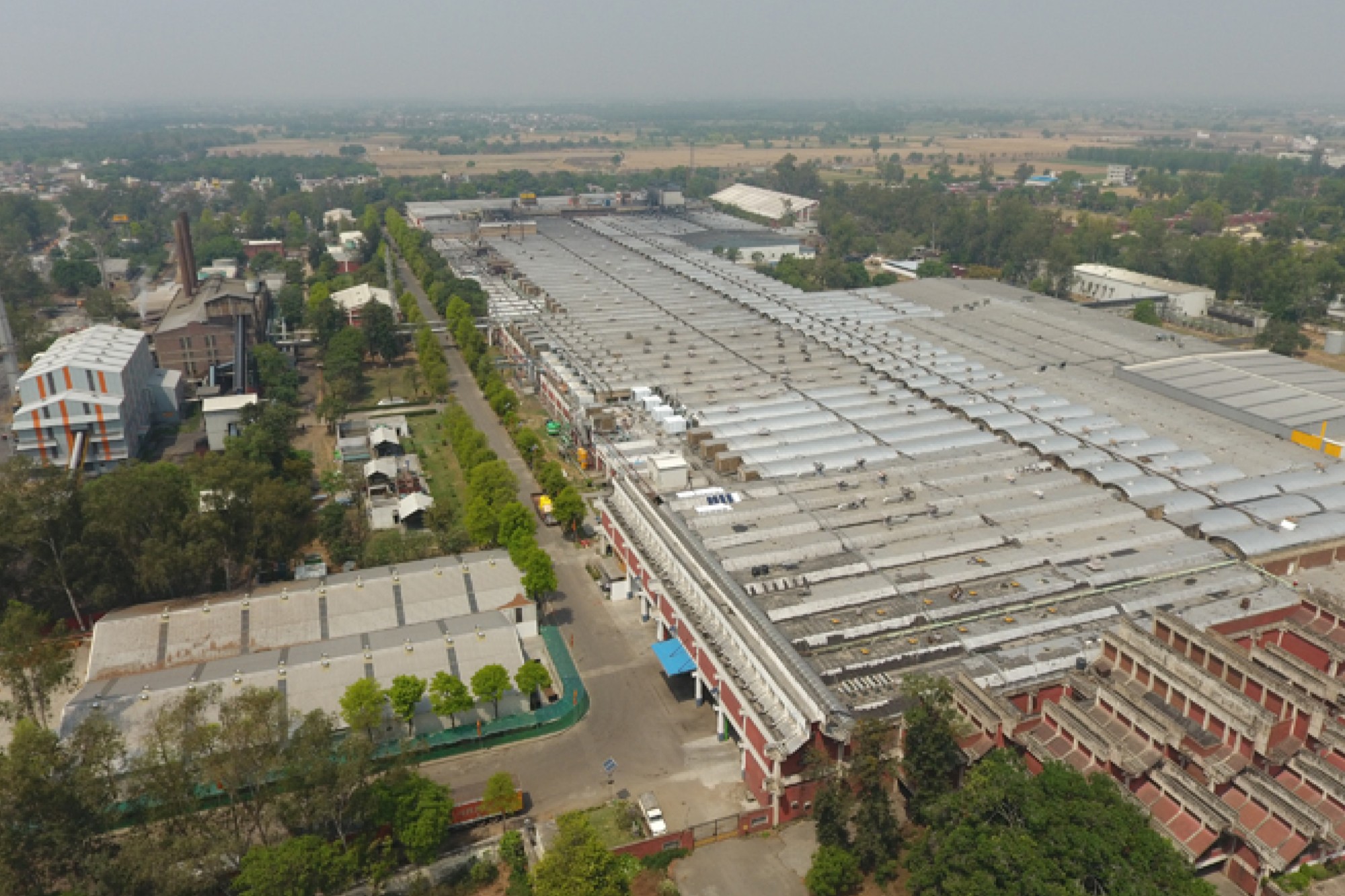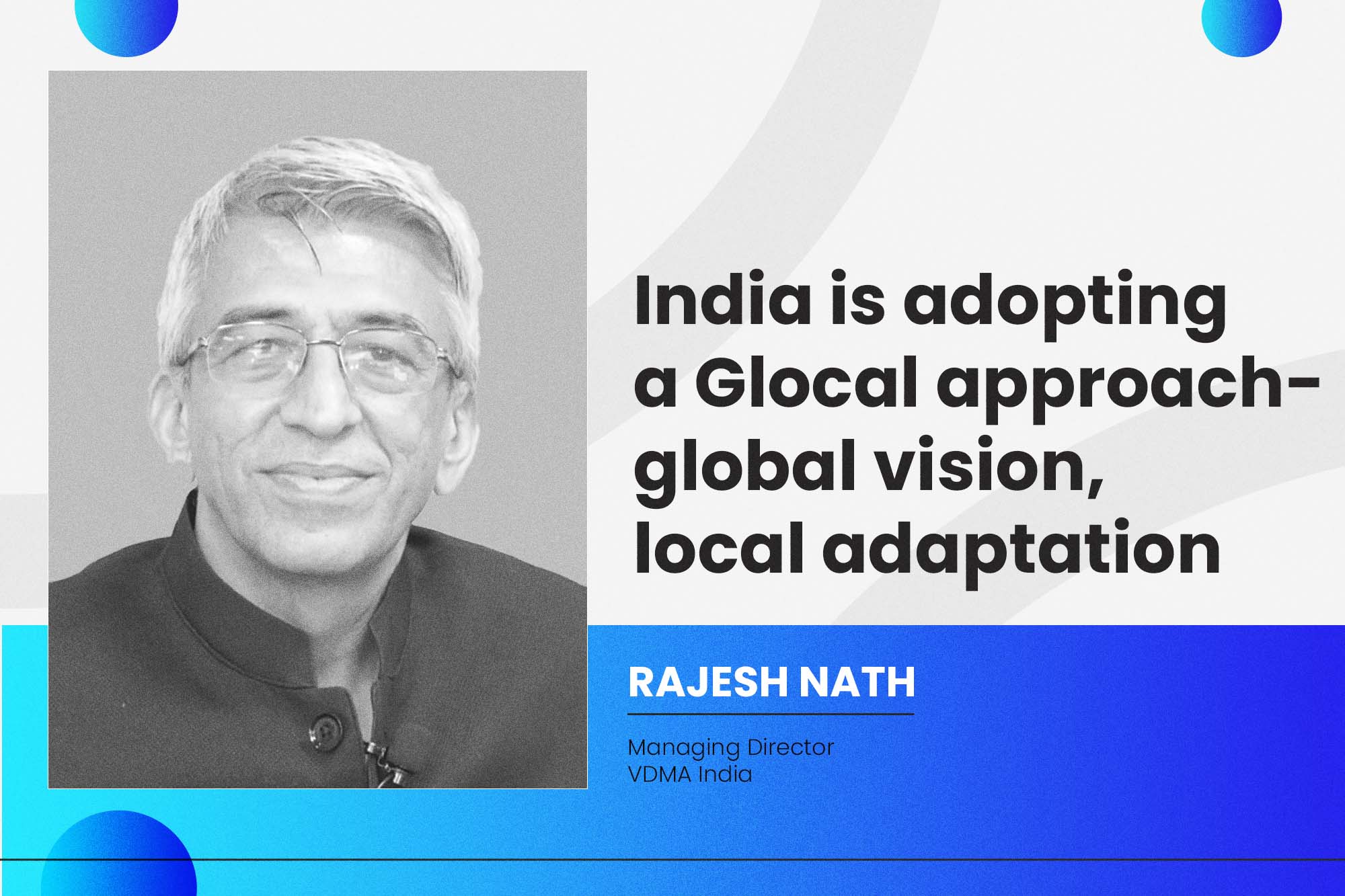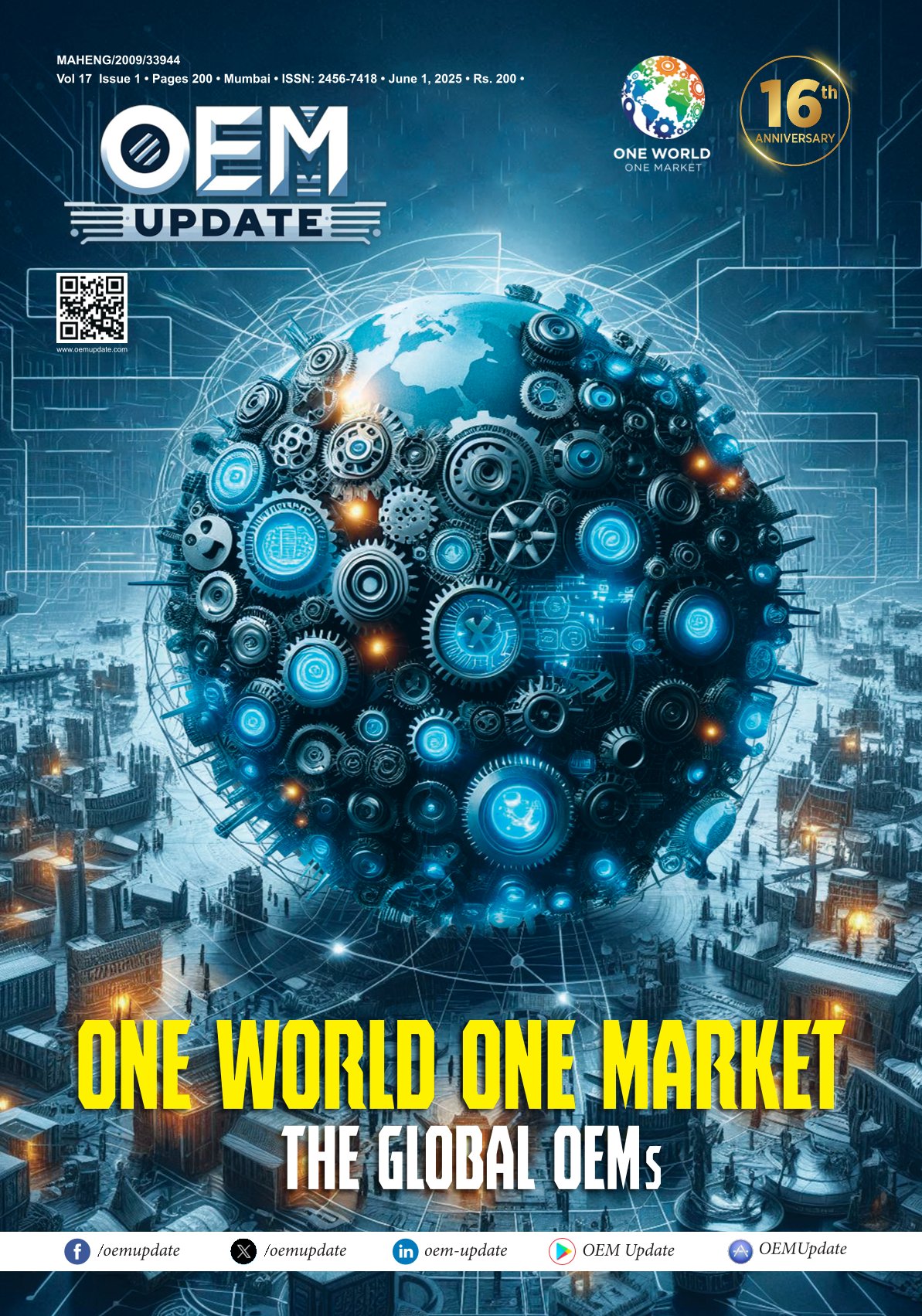Indian automotive: Steering global indigenisation
By OEM Update Editorial June 18, 2019 1:54 pm IST
The automotive industry contributes to more than 7 per cent of the country’s GDP; supporting jobs for 32 million people. India, with its unique stronghold on soft skills, software and hardware infrastructure is poised to win the global game, says Rajesh Nath, MD, VDMA India.
Make in India’s made for India’s automotive sector
Make in India was devised to transform India into a global design and manufacturing hub. Automotive industry has come a long way since then. Over 29 million vehicles were produced in 2017-18 Vehicles produced in India are not just catering to the domestic demand, but a large share of those produced here are exported to over 150 countries across the globe. ‘Make in India’ for the automotive industry has been possible due to Indian entrepreneurs, who took the dive and the technology infusion from foreign companies, and successfully made India a manufacturing hub. The focus of the government on local value addition and employment through judicious trade and investment policy has steered indigenisation of the auto industry with both Indian and foreign companies contributing to the development.
The Automotive Mission Plan 2016-26 (AMP 2026) clearly lays out the government’s collective vision on how the automotive sector should grow regarding size, contribution to national development, technological maturity, global competitiveness and institutional structure. It aims to make India among the top three automotive industries in the world and increase exports exponentially to reach 35-40 per cent of overall output.
Digital India, being user-centric
The enterprises today are seeing an unprecedented rate of change – where the work, the worker and the economy is changing. This unprecedented change, driven by digital technologies, is redefining the new era of opportunities. The future of manufacturing is Industry 4.0 technologies such as automation that have multi-fold benefits with minimal investments.
Digital technology is making machine tools industry adopt Industry 4.0 and move into digital manufacturing from product design, engineering and execution to digital services. By using Industry 4.0 technologies, companies can rise to the global challenges of increasing customer requirements and volatile market developments. Through the interconnection of intelligent measurement technologies in production, data becomes available which together with automation solutions can be used for self-optimisation, self-configuration and self-diagnostics. In this way, the state of machines can be continuously captured and monitored from anywhere in the world. Thus, the conditions for predictive maintenance and services are created.
Game changer for SME and MSME sector
Industry 4.0 can be a game changer for the SME and MSME sector. There is a wrong perception that it is only applicable to large companies. However, applications like remote monitoring or predictive maintenance can really help companies reduce costs of their own production by avoiding breakdown of machines. Also, an increase in sales can be achieved through the enhanced usefulness and value of their own products.
Smart Factory, a welcome disruption
The Industry 4.0 vision stretches beyond technologies and looks at the end-to-end chain, including, for instance, warehousing, logistics, recycling, energy, workers, security and transportation. Bringing together automation manufacturing and smart factories will bring unprecedented levels of efficiency and speed to a business, but the downside of this is that many companies will see a workforce that will be unused to the new developments taking place, and ill-equipped to adapt to them. But experts agree that the transformation underway will result in net job creation, not loss; provided, the required skills are developed in them. This can be done by providing access to information and building a culture of continuous learning i.e. connecting our workers in the same way we connect our machines and systems – IIoP (people) in addition to IIoT (things).
India has a unique opportunity to innovatively pave its own road to smart manufacturing. The major area of focus shall be the technological advancement across various industries. IIOT, 3D Printing, 3D sensors, social software, augmented reality, location awareness are considered to usher in the next era of smart production.
Riding on the success of last year’s Symposia in Bangalore and Pune, and to create more awareness, building strategies and road maps to migrate/build the business/ machines oriented towards Industry 4.0, which is the contemporary technology for the mechanical & plant engineering globally, for the Indian manufacturing industry, VDMA organised the 2nd International Symposium on “Industry 4.0 – the Future Concept of Manufacturing” on 25th and 26th April 2019 in Ahmadabad and Chennai, respectively. The event focussed on implementing Industry 4.0 in manufacturing, focusing on automotive, aerospace, machine tools, construction & material handling, food processing & packaging, heavy and process engineering sectors; more than 250 delegates participated.
Technological advancements in the automotive market
Indian AR market is projected to grow at a CAGR of 55 per cent till 2023. In the past couple of years, the growth in Indian AR/VR market can be attributed to the increased penetration of head mounted displays (HMD) in the gaming and automotive sectors, rising demand in the healthcare sector and increase in defence spending.
India can skip several steps that other countries adopted in their evolution from an agrarian society to their current stage of development. Industry 4.0 is expected to transform manufacturing in India by bringing operational efficiencies to manufacturing industries like automotive, electrical and electronics. IIOT, 3DP (3 Dimensional Printing) 3D sensors, social software, augmented reality, and location awareness are considered to usher in the next era of smart production. The developments in the metal additive manufacturing sector has largely boosted the utilisation of 3D Printing technology in the aerospace and aviation industries. These days, the use of 3D printing in automotive is evolving from relatively simple concept models for fit and finish checks and design verification, to functional parts that are used in test vehicles, engines, and platforms. It is expected that 3D printing in the automotive industry will generate a combined $1.1 billion by 2020.
Adopting intelligent automation
Firstly, digitalisation has the potential to transform every aspect of production – and it will create disruptive products that make the most of new-found connectivity. It’s important to start the digitalisation process with proof of concepts or pilots, easily-understood projects that can be scaled up into larger projects when ready. Taking a step-by-step approach ensures factors such as networking, machine-to-machine (M2M) communications and integration with legacy systems can all be considered and addressed in a timely and cost-effective way.
Secondly, setting clear objectives for digitalisation and having a complete understanding of what the end goal looks like helps align team members and overcome any potential barriers at an early stage, meaning digitalisation can be introduced efficiently.
Lastly, business transformation means change, and all stakeholders need to be on board. They should understand and accept the need for that change, and know how they are contributing to it. A clear communication strategy and inclusion of all stakeholders is imperative to achieve buy-in from the start.
Indian entrepreneurs took the dive and technology infusion from foreign companies and successfully made India a manufacturing hub
Rajesh Nath, Managing Director, VDMA India
Cookie Consent
We use cookies to personalize your experience. By continuing to visit this website you agree to our Terms & Conditions, Privacy Policy and Cookie Policy.




